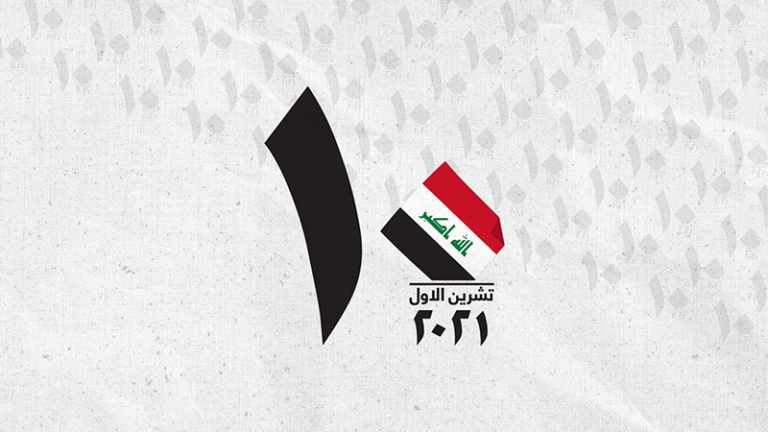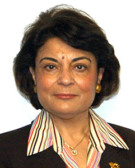
Iraq’s parliamentary elections, set for October 10, 2021, represent the sixth national poll since 2003. Iraqi President Barham Salih described them1 as “critical” and “fateful,” with repercussions for the country and the entire region.
The elections are being held seven months ahead of the statutory date, which would have been the spring of 2022. The early date, and a revision of the election law, came in response to the demands of protesters in 2019, who called for far-reaching reform of the political system. The elections are promoted by the government as an opportunity to usher in an era of reform, a new social compact for responsive governance, a crackdown on corruption, better service delivery, and greater equity in resource distribution. The president, prime minister, other political leaders, as well as the United Nations have urged voters to turn out in force, emphasizing that change can only come through the ballot box. According to official figures, participation in the 2018 elections stood at 44.5 percent of eligible voters, a decline from 60 percent in 2014. For the Iraqi government and political parties, a high turnout in the coming elections will be important to legitimize a political system that is under pressure and would provide legitimacy to the political process. By contrast, a low turnout will shake the faith in Iraq’s political compact and its claims to democracy.
Despite the calls for high turnout and the unprecedented scale of promised UN and international observers, many Iraqis are unconvinced that elections will bring about change. In particular, those who participated in the 2019 protests have grown cynical about the political process and skeptical that elections will reform a flawed system, or that the grip of existing political parties and party bosses (seen as the source of Iraq’s dysfunction) will be loosened. Only a few of the groups and leaders who emerged from the 2019 protest movement are willing to embrace the elections as candidates or voters. Many more have declared that they will boycott the elections, such as al-Bayt al-Watani2 and the Communist Party; they also cite the likelihood of intimidation, financial corruption, and fraud to coerce voters. Indeed, a strong disincentive to voting is the participation of parties with armed militias that are likely to use force to undermine the integrity of elections. Despite exceptional security measures taken by the government, armed groups pose a danger to independent candidates and voters. The threat to safety is real: protest leaders have been assassinated and kidnapped by unidentified assailants in the past year. Many reformists therefore prefer to form opposition platforms and refuse to confer legitimacy on an electoral process that they view as fundamentally unfair and unfree.
Polls assessing the level of participation vary dramatically, with one predicting participation at 29 percent while another put the expected rate at 80 percent. The big disparity arises possibly from methodologies, including sample selection. Apart from these polls, the depth of disillusionment and lack of trust were demonstrated during a recent meeting (attended by this author) in which 250 civic activists were informally surveyed about the elections. Responding to a question about their expectations, an overwhelming 78 percent expressed the view that “the same parties will hold on to power” and “the same political figures will remain on the scene.” In addition, 75 percent said that the existing political class was “not accepted by the people,” and “they don’t represent me,” while 39 percent said that there was no point in voting since “the same corrupt parties will dominate the elections.”
Their responses betray pervasive alienation and a chasm of distrust between the political class and the population at large. The call of protesters, “we want a homeland” (nureed watan), was an explicit indictment of political parties and leaders for breaking the social contract between government and governed, and for owing allegiance not to the welfare of the country and its citizens but to their personal or outside interests—and thus destroying the principle of citizenship and subverting democracy.
Citizens in all areas of Iraq are disillusioned with the political process and its outcomes, but the most alienated, and therefore the ones most likely to boycott elections, are the Shia in Baghdad and the southern Iraqi provinces. It is perhaps here that the rift is widest between citizens and politicians. The Shia have an acute sense of betrayal by a political system that was allegedly designed to represent them and their interests. In the elections of 2018, turnout was lowest in Baghdad and the south, and it is likely that the same will hold true in the upcoming elections.
In predominantly Sunni Arab areas to the west and north of Baghdad, political inclinations are more nuanced: Sunnis start from a lower base of expectations from what they perceive as a Shia dominated state. Following the US-led invasion of 2003, Sunni political sentiment has been more rooted in sectarian self-preservation, and Sunni political leaders have taken advantage of vulnerability by proclaiming themselves defenders of the community. Although Sunnis may not have a high opinion of their representatives, their votes are a matter of communal self-protection.
On September 29, Grand Ayatollah Ali Sistani exhorted Iraqis to go to the polls. His message included a call to “make a good choice, otherwise the failures of the previous parliaments and the governments emanating from them will be repeated.” Sistani’s message therefore has a dual purpose: it encourages a larger turnout, but the aim of the turnout should be a more judicious choice by voters. Sistani carries weight among the most disaffected—the Shia of the capital and the south—and his call may help to increase turnout, though it cannot assure a more honest election based on the free will and choice of the people. Many fear that the only beneficiaries of Sistani’s call will be the powerful Shia parties that have already been discredited and reviled, but who can easily mobilize their stalwart supporters.
If democracy requires trust in the social contract between the state and its citizens, and belief in the legitimacy of the political system and the outcomes of its processes, then democracy is still a distant goal in Iraq. According to one prominent activist,3 it is a “deformed democracy,” one going through mechanical procedures without reflecting essential principles.
The views expressed in this viewpoint are solely the author’s.
1 Source is in Arabic.
2 Source is in Arabic.
3 Source is in Arabic.

